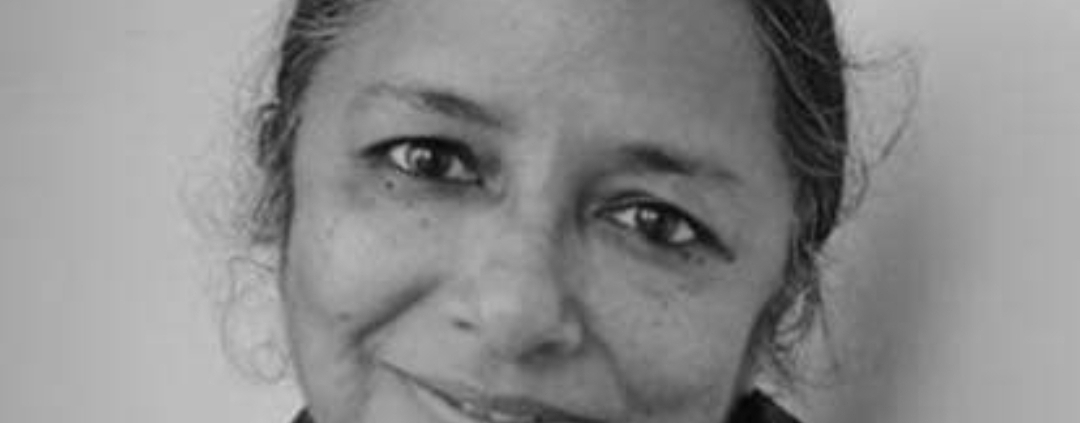Chandita (from public tributes and personal reminiscences)
by Smriti Nevatia
(Chandita Mukherjee was among the founding members of IAWRT India chapter. She was a documentary filmmaker and served as the executive producer of IAWRT’s documentary “Displacement and Resilience.’ She passed on April 18, 2023, just two days before her 71st birthday.)
A framed greeting card hangs above my bed. It depicts the auspicious feet of Laxmi, tiny at the centre of a large Madhubani flower that resembles the sun. There is a handwritten inscription on the back:
For Smriti, for her first home.
With lots of love, Chandita
January 1986
That first home was my first independent living space in Bombay, a rented flat I shared with three other working women, and just like that my life changed forever! Since I had been assisting Chandita for a couple of years, she not only understood how essential such a space had become for someone like me, who lived in a conservative joint family home filled with everyday conflicts, she enabled it through the regular monthly salary I began to earn as a member of her ‘Comet Project’ team.
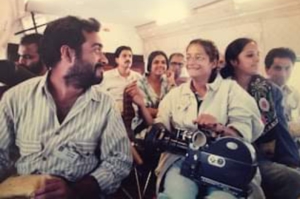
Over the next few years, we went on to travel cross-country by bus, filming for Bharat ki Chhap (The Identity of India), a 13-part TV series on the history of science and technology in the Indian subcontinent. There was worldview-forming research and reading and writing, there was the recording of songs and mixing of the final episodes in late-night studios, and not to forget the fights! Yes, of course, we fought (as who could fail to, over years of such intense collaboration and proximity), over everything from creative ideas to tones of voices. And I learned. About filmmaking, history, politics, and, not least, friendship – the many friends I made then are still, nearly four decades later, friends I made for keeps, and Chandita was the fulcrum of this group. Comet was hands-on film school, postgraduate studies in history, and life lessons all rolled into one.
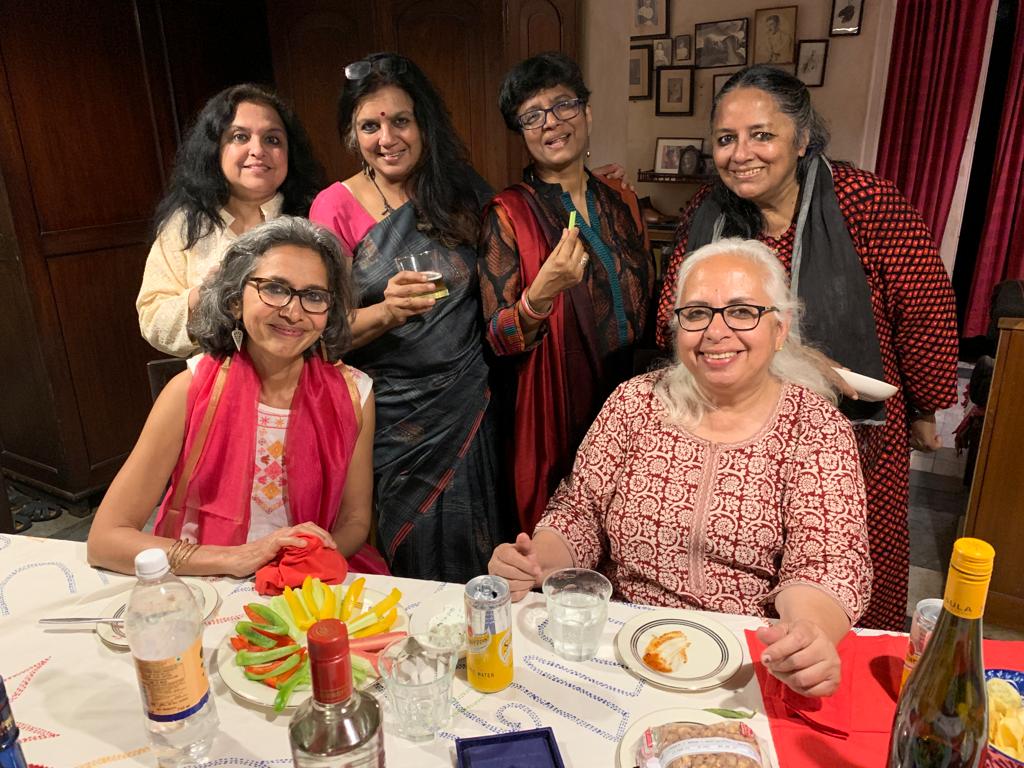
What sort of life lessons? On Chandita’s 69th birthday in 2021, in the midst of the pandemic, some of us organised a “Zoom party” for her, in which Niti, a friend working at an art gallery, told Chandita how much she had always admired:
…the quality you have when…in public, you so thoughtfully introduce two people, giving some bits of information about both, in such a manner that both want to know each other. I think that’s a gift…something I wish I can learn from you.
As I replay that recording now, I recall nodding and saying to myself, “Yes! And also how, in social situations, she always has the grace to include people on the fringes of any group and to clue in anyone who came in late, so they don’t feel left out. That inclusivity, based on noticing and on caring – which I have tried to emulate ever since, and realised most people don’t bother to do.”
Chandita didn’t just bring people up to speed on topics under discussion at parties; she famously discovered the occasional outlier, sensed their potential, and nudged them towards fulfilling it. In the words of Freny Maneksha, a well-known senior journalist and author of two books:
If it hadn’t been for Chandita and Feroze I would not have become a journalist. She ferreted me out in the Taj shopping arcade where I used to sell shirts…and enthusiastically told me that Feroze was going to be the magazine editor for ‘The Daily’, a new tabloid…and that I should join him. I had no experience whatsoever but…she breezily brushed away my concerns. I had studied English literature, she said, and hadn’t we displayed our felicity with words back in college days, writing up lyrics, and mad verses!
“We” were a bunch of young women, who had studied in Miranda House in the seventies and become friends. Chandita was clearly the lodestar, bold and beautiful in her cotton sarees, encouraging us to stretch the goalposts….It was through Chandita among others that we began getting acquainted with ideas of leftism, of a more equitable world, of feminism, all the social ferment of the seventies. What was wonderful was that that knowledge was not shared in any didactic way, she had a vibrancy and humour that kept us deeply engaged….Senior to us, at the end of her term Chandita announced that she was going off to FTII in Pune. We were struck with amazement. Women seeking a career back then stuck to studying for the civil services exams…But films? Her parents had refused to fund her but with her poise she took up some modelling assignments and earned enough to pursue her courses….Not for nothing did you choose the words “Comet Media”, Chandita, for your venture. Cannot forget your blazing energy.
In a compiled video of messages for what would have been Chandita’s 71st birthday, old friend Anjali Monteiro, filmmaker and retired professor, author of books on documentary cinema, and current member of IAWRT’s International Board, recounts:
It’s actually been 46 years…When we first met I was this shy and timid “Ms Angelica”, as you would call me! Being with you and doing things with you I think has transformed me so much, I became much more adventurous, much more able to deal with new people and new situations – and I think what I am today, I owe a lot to you.
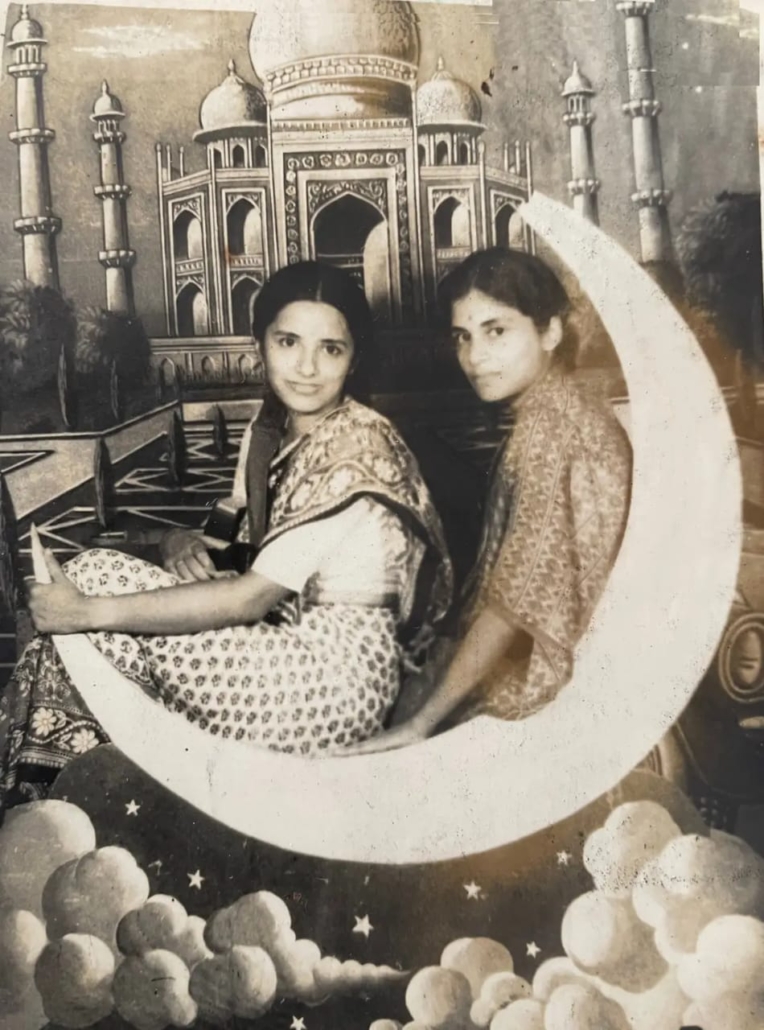
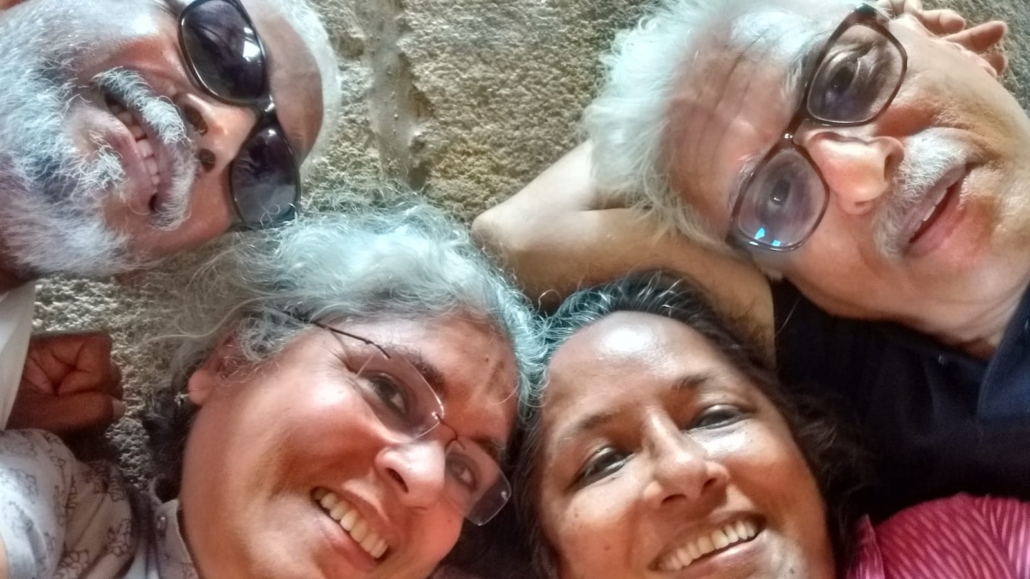
Neela Bhagwat, renowned Hindustani classical vocalist, feminist activist and author, echoes Anjali as she refers to the slide shows on menstruation and women’s health on which she worked with Chandita and Anjali in the early eighties:
I must tell you…how much you have done for me to develop into a woman with [the] confidence…to struggle and fight for [one’s] ideas and rights. When the three of us worked together…it gave me that identity…I became a different person.
CK Muraleedharan, cinematographer of several successful Bollywood films, adds:
…I think I never got a chance to tell you this: my first big project was with you, and you influenced me a lot in forming my work ethics, and equality in [the] workplace, and my political viewpoint about cinema…thanks a lot for being there for me in my formative years.
And Surabhi Sharma, filmmaker and film teacher, recalls:
You’ve always been there for my first screening, both Feroze and you – even at a time where I didn’t think you knew me at all, but just an email from a fresh graduate from FTII was enough…over screenings and festivals and IAWRT and meetings and FTII strikes, one got to now you more…and came to depend on you…thank you for your presence in our lives.
When Reena Mohan, filmmaker, editor and mutual friend, sent out a call for these video greetings, I knew Chandita was already sinking. We all hoped we were wrong but, as it happened, she left us two days before her birthday.
Chandita’s housewarming gift to me, that framed Madhubani, was followed over the years by innumerable other gifts. My home contains many cherished objects I received from her over the decades: ranging from a dozen hand-painted ceramic bowls from Kashmir (this was to compensate me for having missed the Kashmir location shoots for Bharat ki Chhap as I was unwell) to a circular cane-and-wood dining table with four chairs (my first dining table! for what is now my third home) – a set she claimed was just taking up space in a corner of the immense sea-facing flat where she lived with her husband Feroze, and which she made forever and indelibly her own with her plants and her contemporary art and traditional craft collections – and all those unforgettable parties with amazing food! – even as she never failed to honour the memory of Feroze’s grandmother whom she had loved deeply, and from whom they had inherited their home. And the day I came out to her as a queer woman, she was so overjoyed for me that she pulled open a huge cabinet drawer in which were stored the artisanal treasures she never failed to acquire on her travels, and asked me to pick a present, any present! How can I describe what I felt? So affirmed, held, special, moved (it’s another matter that I chose a pair of sandals with vaguely rainbow straps, which I never managed to wear because they were some two sizes too large, but it was still one of the best presents I’ve ever received).
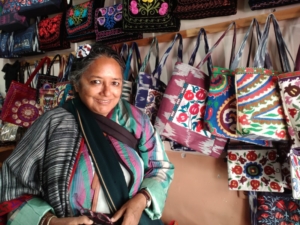
What was behind that deep drawerful of presents, the works of Vivan Sundaram and Sudhir Patwardhan and Nalini Malani on her walls, and those rows upon rows of brass and copper lotas? Chandita had lived abroad, on and off, till she was 16, and after returning to India for good and completing her formal studies, she immersed herself in the nuances and histories and processes of Indian crafts and textiles and art and culture and food. Everything interested her, deeply, seriously, joyously. No wonder she was a polymath – speaking of a painter’s characteristic brush strokes with the same easy familiarity with which she expounded on the use of a certain spice in a specific cuisine, or bewailed the commercial mass production of her beloved Bastar bell metal art on which she had made a documentary towards the start of her filmmaking career.
Of the spirit that made her such a traveller of so many realms, we get an early glimpse from Betsy Wollheim, who remembers Chandita as her “dear, dear high school friend”:
…her wonderful mischief-loving soul, her intelligence and informed world view helped me get through some of the toughest years of my life.
We used to go to Christmas midnight mass at St. Patrick’s Cathedral (a Jew and a Hindu) because it was different and exciting for us. One year we came out at 1:45 am (high mass) and it had snowed. There were no cars anywhere. Without even speaking, we both ran down the middle of a deserted, snow covered Fifth Avenue with joyous abandon.
I cried when she went back to India in 1968, but happily, we did live to see one another twice more…
And Dorit Kehr says:
Chandita and I were close friends in High School and she was an expansive influence in my life, introducing me to Living Theater and much else. We lost touch for many years and reconnected in 2009. I visited her in India and was fortunate to have her as my guide, teaching me history and providing an insider’s view.
Celebrated photographer Pablo Bartholomew gives us his version (along with a glorious and already widely shared photograph) of the teenager from New York newly arrived in Delhi:
In my mid-teens, I was part of a street play, nearly ready to hit the road, when in walks Chandita Mukherjee…This lovely-looking lass with a glowing face and broad smile…Rumours were that her father was in the Foreign Service and was back on a home posting, so here she was….Feroze Chandra was a prefect in our school…So I remember him too…a tall, lanky, good-looking lad with wavy middle-parted hair…. and I distinctly remember Feroze’s eyes popping out at seeing Chandita. So he swooned, and she swept him off his feet…Cut to this photograph taken in my late teens; Chandita was studying at the Film and Television Institute (FTII). We rendezvoused in the canteen with Ketan Mehta. It seemed they were up to some mischief, and Chandita very expressively and enthusiastically egging him to induct me into their scheme of things.
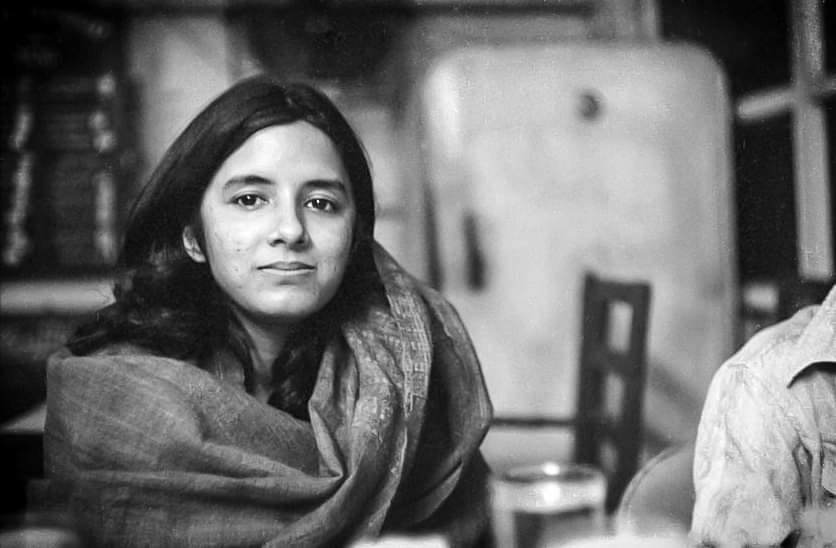
Who knows quite how and when that young woman who was often “up to some mischief” grew into a mentor figure for younger practitioners, one of whom recalls that “she was someone whom two generations of young filmmakers worked with at some point in their lives.” Filmmaker Reema Borah shares an email that she, as a newbie film school graduate, received on 30/12/2005:
Dear Reema
I was wondering what you plan to do after the Institute. I need someone to work with me. It is difficult for me to give a job description in a nutshell. We will have to meet and play it by ear. I liked your film on Arun Kolhatkar and so I thought we may hit it off.
Do you plan to visit Mumbai at any time? Do let me know.
Best wishes for the New Year!
Chandita
And Pooja Das Sarkar recounts:
…I was a fresh graduate from TISS…who wanted to work with her idols, especially women who made films….I had a short stint in 2009 at Chandita’s storehouse of wonders — her NGO Comet Media Foundation…She represented everything dear to me – documentary, education, media for advocacy, media for development, science education, children’s media, workshops for training….[The] office on Lamington Road [had] a spacious library with books on sociology, science, feminism and all kinds of material on the development sector….Chandita was tall and intimidating, but also she would break into her exuberant smile and welcome people warmly….she would share her ideas and knowledge openly and encourage us to experiment, be radical, and not be “pen-pushers”!…there was no slacking around her….[her] impact remains on all of us who were touched by her sheer force of intellect and joy at sharing and disseminating knowledge. She inspires me to live my life according to the principles that matter to me….Chandita, your work will live on in film…Your courage, spirit and erudition will always lead us — women in cinema.
Pooja remembers last meeting Chandita at a screening of theatre practitioner Anamika Haksar’s acclaimed first film, ‘Ghode ko Jalebi Khilane Le Ja Riya Hoon’, and here’s Anamika speaking of Chandita:
My sister’s friend, who helped me too….Brought up my son on her bookshop of Indian publications and toys. She came…for my play ‘Uchakka’, supported me thru ‘Ghode ko Jalebi…’, came for my first talk in Mumbai.
While Chandita encouraged her juniors and supported her peers, she didn’t hold back from pointed albeit constructive criticism. That a “scolding” from her could be appreciated, retrospectively, as an act of mentoring, speaks to the wisdom of both scolder and scoldee. Filmmaker, writer and curator Paromita Vohra recalls:
I was young, overwhelmed by the city and the idea of work and nervous about saying no, so I flaked massively on getting back to her. The second time I met Chandita, she gave me a scolding. I was assisting another filmmaker and ran into her while we were shooting a peace concert in a maidan…She told me in forthright terms — not mean, but definitely firm — that what I had done was wrong. I was suitably ashamed. Yet I recognised, even in my foolish and shameful young way, that this scolding meant she was taking me seriously; telling me to take myself seriously, to be professional, dependable and to excel if I wanted to make something of myself in this world I’d entered. It was a strict, impersonal gesture of apnapan (kinship); an expansive act of mentorship. In the 30 years that followed, until her death last week, I ran into Chandita everywhere — at film screenings, at art shows, at political protests, at book readings and talks. That continuous presence had a profound meaning: it signified belief and confidence in a world she had chosen to be part of and had also helped to build….We did not always agree and sometimes complained about each other to our colleagues. So what?…Community is built by witnessing something together, by being able to recognise the meaning of what someone does, not simply their success or their pleasantness….Chandita’s commitment to media, education and social change was deep. Her smile was big. Her saris were beautiful….Her scoldings had been many and may we count them among her achievements as acts of idealistic love and feminist comradeship.
Filmmaker Miriam Chandy Menacherry echoes Paromita’s thoughts about community-building:
Right now when the Indian documentary is being hailed internationally I look at your work, your generation and your legacy and salute the way you carved the path with your comrades, each fiercely independent women, yet able to come together with a common sense of purpose to build community. It is on your shoulders that we documentary filmmakers especially women have climbed higher. I am happy that I got a few stolen moments between screenings with you in the last IAWRT festival just before the pandemic… bright-eyed, fiercely critical, generously kind and always with that smile.
For all her pioneering contributions, and the many awards and felicitations that came her way, one of Chandita’s most disarming qualities was how she never seemed to consider herself particularly deserving of compliments. When people recalled some personal act of kindness by her, she looked bemused, as if wondering how else we were supposed to behave towards one another. Feminist academic and activist Vibhuti Patel remembers her as:
…a helpful, self-effacing and highly refined comrade….On 6-3-2009, SNDT Women’s University, Mumbai had collaborated with Vacha Charitable Trust to commemorate 8th March…where short films made by girls from VACHA, who were trained by Chandita, were screened. We felicitated Chandita who was not prepared for so many nice things being told about her by so many of us!! She blushed.
We at Vacha Trust salute Com. Chandita Mukherjee for her commitment to Development Media for Equity and Social Justice.
While Chandita could wax eloquent about cinema, or impress you with her knowledge of things ranging from saree weaves to elliptical orbits to watermelon rind pickle (“When I was a child in Poland…” begins one of her WhatsApp messages on a group where some of us exchanged recipes during the pandemic, and she goes on to detail the method of making that long-ago pickle, not forgetting to stress the importance of sterilised hands and bottles, and describing the eventual taste and texture), she could also point to someone walking on the pavement near her home and regale you with their life story – in scenes complete with dialogue! Your protests of “But how can you know s/he said that? You weren’t there!” made no difference. What she didn’t know, she invented, a documentarist playing the fiction card with élan.
Filmmaker and cinematographer Avijit Mukul Kishore, who worked with her in 2012 on a film on the teaching of Mathematics, recalls the fun they had on location:
Chandita was a great storyteller, full of anecdotes and good-natured gossip! Nothing oils film crew conversations better!
Arindam Ghatak, who spent some time in Chandita’s office editing films for her as well as for others, has vivid memories:
…she was encouraging and firm and warm all at the same time though her fierce nature sometimes made me a little edgy but then simultaneously, she was also so open-hearted and passionate that [it] made you drop unnecessary defences…
Storyteller, fierce, open-hearted: all true. Make no mistake, Chandita could also be exasperating! I worked with her from time to time on different projects, till as recently as five years ago, and she was so adamant things be done a certain way, whether it was how you named a Word document or how you made columns on an Excel sheet, I would get intensely irritated. She was always apprehensive that someone was going to ignore the golden rules of standardisation, because that kind of shoddiness, which she encountered at every turn, upset her terribly. I had to remind her many times that I now freelanced as a text editor and that for me a certain kind of standardisation was next to the godliness to which neither of us actually subscribed. I told her I yelled at students who gave me scripts with tenses, cases and colons all mixed up, but I wish now I had also told her (perhaps I did) that I had pretty much learned the value of basic stylistic consistency from her, all those Comet years ago. And that maybe we had both absorbed this particular lesson from the Harappan bricks and weights and measures that we made such a song and dance about in Episode 3 of ‘Bharat ki Chhap’!
Chandita was closely associated with the National Institute of Design (NID), Ahmedabad, and did a number of workshops with students there. Arun Gupta, former Head of Film and Video Communication, shares a video link of a session she took there, which archives her charm and persona for posterity:
A true woman of substance, she was my super senior from FTII, and also responsible for getting me the teaching job at NID, for which I will remain permanently indebted. I was a great contemporary fan of her seminal history of Indian science TV series on Doordarshan called ‘Bharat Ki Chhap’ (originally telecast in 1989). Later, in 2014, I organised a talk by her at NID on the trials and triumphs of the making of ‘Bharat Ki Chhap’.
You can watch the entire half-hour video recording of that (FVC PLUS with CHANDITA MUKHERJEE) here:
Always open to new ideas, Chandita moved out of the pedagogy sphere to co-curate two editions of the travelling festival VAICA (Video Art by Indian Contemporary Artists) with visual artist Bharati Kapadia and architect Anuj Daga, in 2021 and ’22. Bharati Kapadia says of the experience:
Her dynamism and generosity were exceptional…[it] was a many-layered experience for me.
And Anuj Daga writes:
When Chandita proposed the cover for the second edition of VAICA – the gripping visual from Tallur LN’s phenomenal film ‘Interference’ – I knew how well she understood the moving image and her ability to immerse herself…into its discourse. Much like the slow motion of the unsettling dust in Tallur’s work, Chandita could slow herself down and pick the details, weaving a cloud of meaning through the specs of the screen.
I shall never stop coming across things I’ll want to share with her, films and articles, plays and art shows and foods, and I’ll never again enjoy the privilege of her responses and insights. And what if the Harappan script is deciphered in our lifetimes? What if Indian fascism is finally laid low, maybe even in 2024? My litany of what-ifs is sure to be endless; I’ll end instead with poetic tributes from two other friends.
from Gita Chadha, teacher of Sociology and Feminist Science Studies (STS is Science and Technology Studies):
…that face, so beautiful
The voice so measured, so kind
The laughter, hesitant at times full-throated at others
Chandita Mukherjee
Of Bharat ki Chhap, a classic for STS people, something I still watch with wonder and recommend with conviction
Of Comet Media, the place to go to, for toys and books…
And from Ajay Noronha, who worked with her as a cinematographer:
…the many worlds n lives she touched
With such exuberance and generosity
…
We fought, we disagreed, I sulked
But she always came back
With another promising adventure
Never with enough budget
But always with that large heart n big bindi
And a jhola full of food
…
May her spirit continue to shower us with abundance!
Thank you Chandita, for making our worlds better.
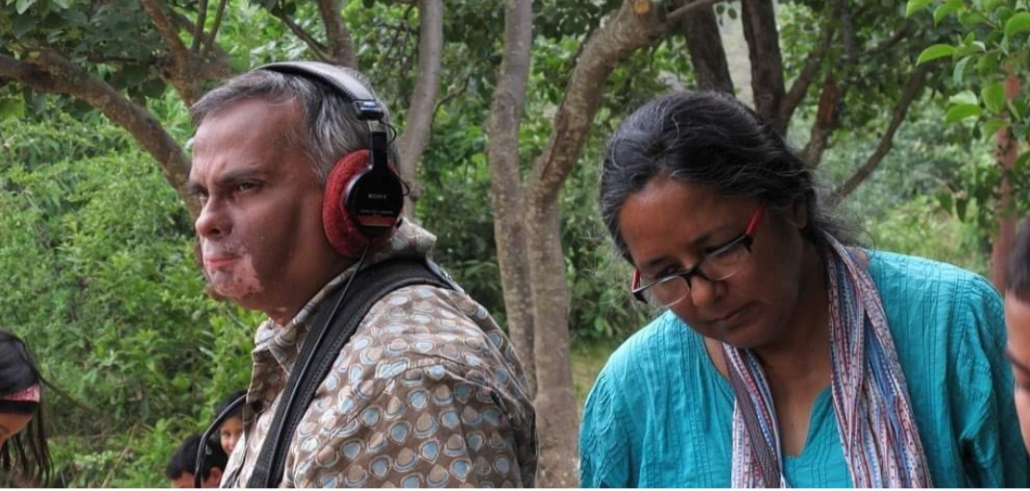
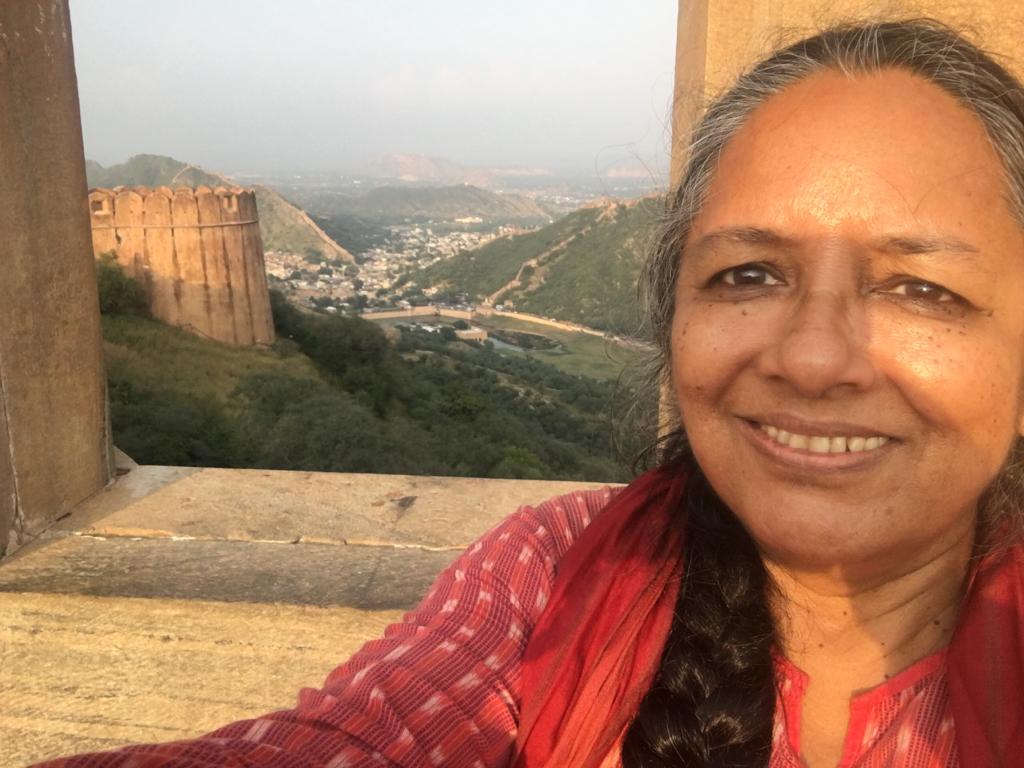
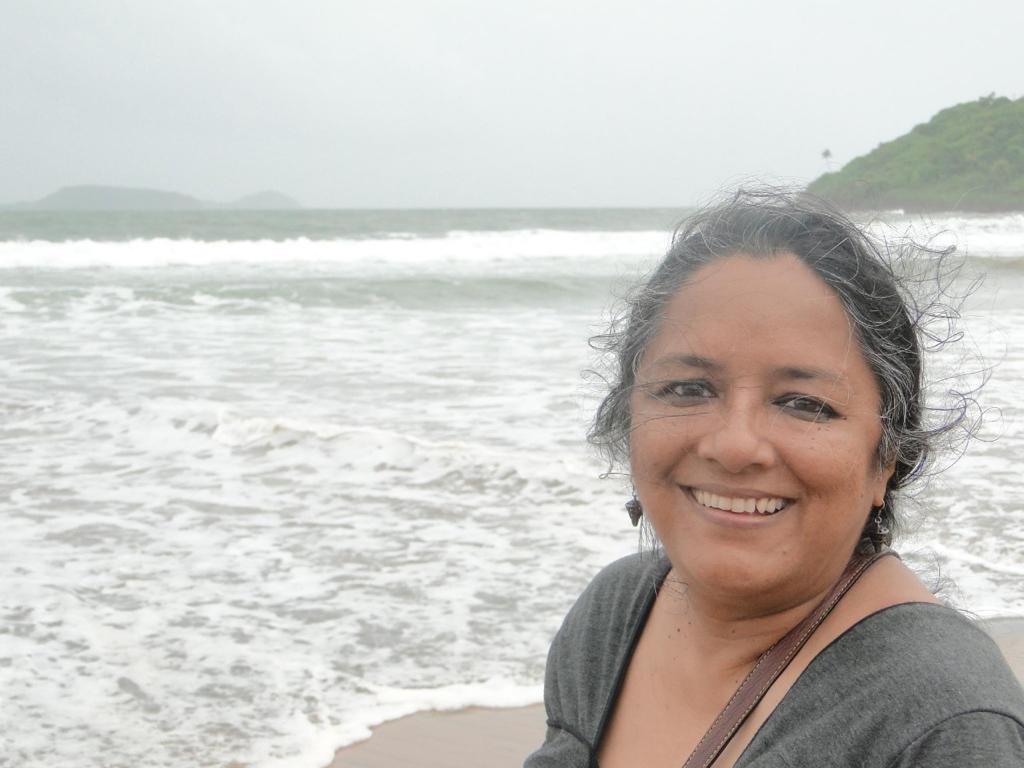
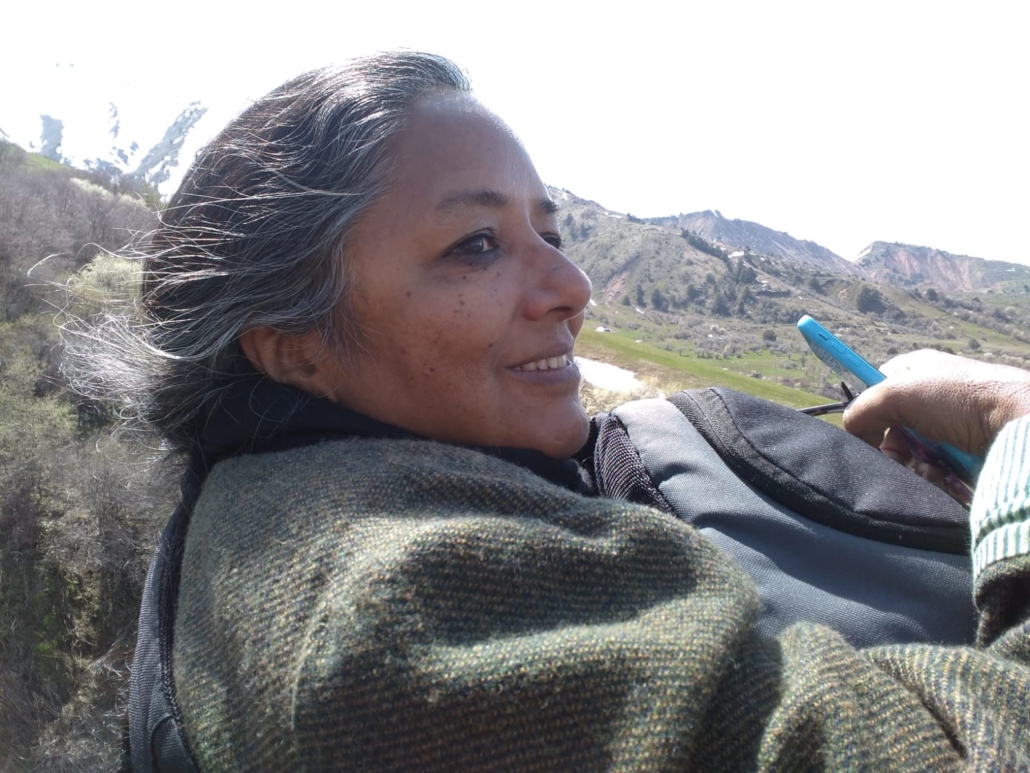
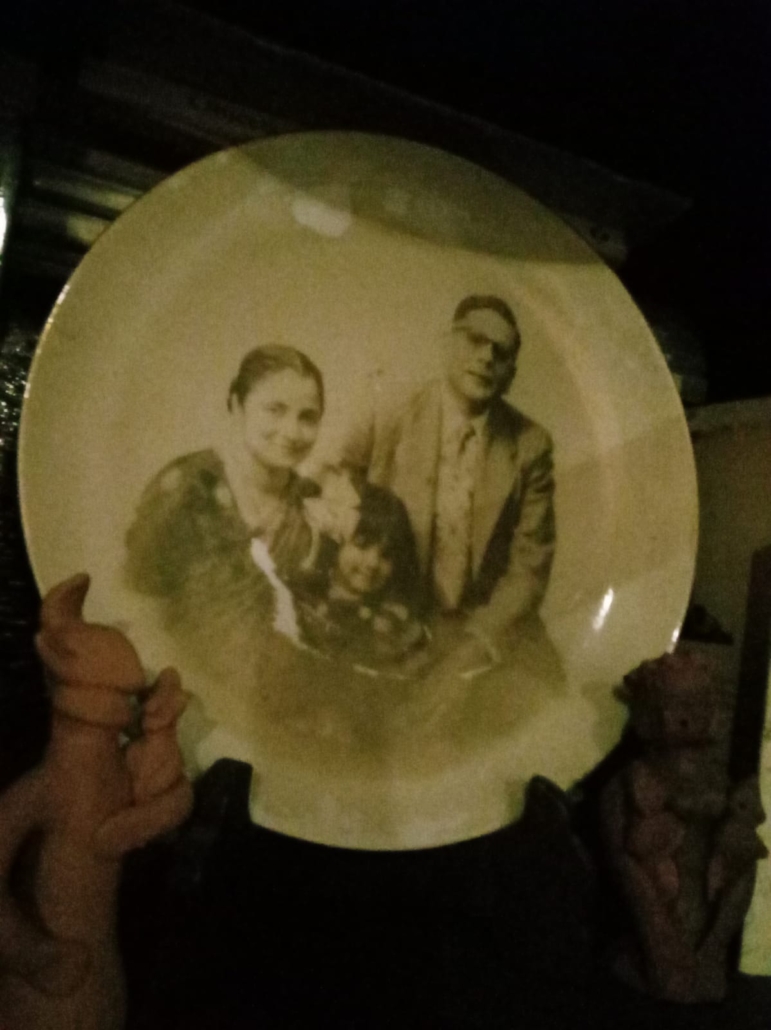
=

